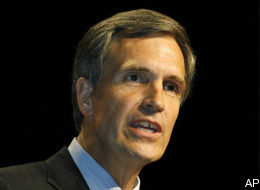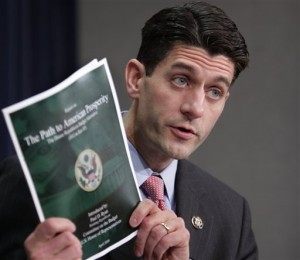Please let us know what you think in the comments section below:
|
The Politics of Tech Back in May I wrote about the Blackberry Pi, a fully-functioning computer that could fit on a USB stick. Now, developer David Braben has announced that his brainchild will enter alpha production and would cost $25, with the possibility of $35 model. How exciting! [Geek.com] In another update of a previous story, Google has begun construction of their 1 Gbps fiber network in Kansas City. They hope to offer the high-speed service in early 2012. We should all hope for a solid and efficient launch so Google can start rolling these out in more places! [Google Blog] It’s becoming more and more clear that ISPs are giving us, the consumers, the raw end of the deal. Everything indicates that their costs are dropping and yet, we continue to pay ever-increasing costs. Many ISPs are also eyeing the possibility of capping the data/bandwidth they offer. Internet speed, availability and cost are areas in which America lags behind many other industrialized countries (namely Japan and South Korea). This is something that needs to change. [TechCrunch] A great concept: Google+ Venn Diagrams. The solution to when you want to share something with people in two different circles. [Techno-anthropology] Contributing RP and former Missouri State House Speaker Rod Jetton‘s deeply personal and stunningly candid story which debuted in The Recovering Politician is now getting notice in Missouri, and on the Associated Press wire across the country. (Click for Part 1, Part 2 & Part 3; and be sure not to miss his video interview with the RP and his video Great Debate with Jeff Smith (hilarity alert!)) Bob Miller (who shares the RP’s beloved late father’s name but is no relation) wrotean excellent piece that appears in today’s Southeast Missourian, which included Rod’s advice to future politicians. Here is an excerpt:
Click here for the full Southeast Missourian story. Rod’s story was also picked up by the Associated Press:
Thanks to the magic of Skype, RPTV introduces a new feature today, “The RP’s Great Debates.” Our very first installment features a debate between two former Missouri state legislators, from opposite sides of the political spectrum, who somehow found a way to become good friends: contributing RPs Jeff Smith and Rod Jetton. In this interview, Smith and Jetton discuss their relationship, debate the debt ceiling crisis, and — best of all — do pretty accurate and very funny impressions of each other. If you are new to The Recovering Politician, you probably should read the following pieces by the two men: Rod Jetton’s 3 part stunningly candid essay on his rise, scandal and renewal: Part 1, Part 2 and Part 3. Jeff Smith’s nationally acclaimed piece (featured in New York magazine’s “Approval Matrix”) on his rise, prison time and redemption: Click here for the full piece. And don’t miss Jeff Smith’s piece on their unlikely friendship. We strongly encourage you to watch the last few minutes of the following video. These guys are hilarious. Enjoy: Thanks to his internationally (!) well-received piece last week in The Huffington Post, “Debt Ceiling for Dummies,” the RP has been on a virtual international tour of radio and TV talk shows. This morning, and earlier on Saturday, he appeared on CTV News, Canada’s version of CNN, making Mrs. RP (a native Canuck) very happy. Click here for today’s story and click here or on the logo below for Saturday’s. Friday night, he appeared as the primary guest on the Wall Street Journal’s “The Daily Wrap” with Michael Castner. The subject — of course — was the ongoing debt ceiling crisis. Click here or on the icon below to listen to the interview:
Google Chrome becomes the United Kingdom’s second most popular web browser. [The Guardian] Mozilla releases a new Mobile OS called Gecko. Can it survive? [TheBitBag.com] A programmer’s family tries to raise awareness after an X-Box addict dies from a blood clot. [Yahoo News] The debt ceiling in popular culture. [New York Times] President Obama took to the White House briefing room at 8:40 p.m. Sunday to announce that an agreement had been reached on the debt ceiling. President Obama and Congressional leaders have come to a compromise to avoid defaulting on the country’s loans and cut government spending. The two-step deal, which has been approved by Senators Harry Reid and Mitch McConnell Speaker John Boehner (but not yet Representative Nancy Pelosi), begins with the Boehener plan of $917 billion in cuts coupled with a $900 billion debt ceiling increase. This includes an immediate $400 billion increase through September and a later $500 billion increase, with Congress voting on resolutions of disapproval, which the President can subsequently veto. The second stage involves “Super Congress” cutting spending by $1.5 trillion by November, with a vote by the end of the year, at the peril of automatic across-the-board cuts. [CNN] Even though a debt deal has been worked out, and many Republicans are pleased with the Speaker’s ability to reach a compromise, there are many in the House Republican Caucus, including many Tea Party-affiliated members, who have derided the bill as not going far enough. The challenge, now, is for John Boehner and House Minority Leader Nancy Pelosi to rally enough votes from their respective parties to pass the deal in spite of the flanks. [Politico] On the other end of the spectrum, progressive members of Congress are taking issue with the deep cuts, including the possibility that Social Security, Medicare, and Medicaid may be on the chopping block if the 12-member board reviewing deficit cuts fails to reach a deal. In particular, Representatives Emanuel Cleaver of Missouri and Raul Grijalva of Arizona, who chair or co-chair the Congressional Black and Progressive Caucuses respectively, have already signaled that they do not plan to support the plan, and Nancy Pelosi was cautious with her support as of Sunday night. [Roll Call] Even though the agreed-upon bill does not include any specific provisions to increase revenues, President Obama has said that the Bush tax cuts are included in the trigger, meaning that failure by the Super Congress to reach a deal by Thanksgiving will result in their repeal. [Huffington Post] John Boehner used a PowerPoint presentation to sell the Obama-McConnell deal to his caucus on Sunday. Here it is. [National Journal] The Washington Post provides a handy graphic illustrating which parties got and gave up what in reaching the deal being presented to Congress on Monday. [Washington Post] With the House Republican caucus clearly split on whether or not to vote for the Obama-McConnell plan, all eyes are on House Minority Leader and former Speaker Nancy Pelosi of California. Pelosi, who has not specifically endorsed the deal as of Monday morning, also faces a caucus rife with division and distaste for the bill (though probably not as deeply divided as the Republicans), and the bill will not pass without some House Democrat support. In recent days, Pelosi and other senior Democrats have advocated for President Obama to invoke provisions of the 14th Amendment and raise the debt ceiling without asking (or waiting) for Congressional approval. [The Hill] Following the announcement of a debt deal, markets in Tokyo, Seoul, and Hong Kong gained between 1 and 2 percent apiece while Dow Jones, NASDAQ, and S&P 500 futures all climbed by about 1 percent. Additionally, gold prices, which were expected to climb in the event of a default, dropped after rising steadily for years to an all-time high. [National Journal] It’s still early, but there already whip counts for the Obama-McConnell bill. The Hill lists 13 in favor, 6 opposed, and several hundred unknown, and Republican Senator Mike Crapo of Idaho has said that he expects some 35 Republican senators to sign on to the Obama-McConnell deal announced last night. [The Hill] My latest column for The Huffington Post reflects one of my great frustrations about today’s politics: The absence too often of rational, civil dialogue. I try to explain why so many disaffected Americans — particularly those in the Tea Party — don’t accept many incontrovertible facts at the center of policy debates, and how the rest of us can become more engaged to dilute the influence of extremism and misguided politics. Here’s an excerpt:
Click here to read my complete column in The Huffington Post.
The generalized anger at “Washington” is misplaced. Not all parties are equally at fault. While political posturing is apparent, it’s not all about politics. Ideas matter more than most commentators will acknowledge, and ideas that morph into convictions impervious to evidence are the root of our distemper. Tax cuts pay for themselves. We’ll be welcomed as liberators. Climate science is a hoax—or at least not “proven.” None of these claims was or is true; the evidence against them is overwhelming. But they remain for most congressional Republicans absolute convictions. Why? I believe they are rooted in a profound aversion to collective action by Americans through our governments. I served on the House Budget Committee for four years listening to Paul Ryan, Jeb Hensarling and my other Republican colleagues rail against “spending” (in the abstract) and promote the idea that tax cuts—in all times and circumstances—drive economic growth. The economists who testified at our hearings took a different view; they emphasized the importance in the long run of keeping revenues and expenditures in some sort of balance. Those were views not well received during the tax cutting frenzy of the Bush Administration. The Tea Party Republicans are not promoting different ideas than their more senior Republican colleagues. They both disdain government, but the Tea Partiers reject political compromise as well. How did we get here? George W. Bush’s signature line for his massive 2001 tax cut was just one step in the promotion of self-interest over common purpose that is weakening America economically and politically. “It’s not the Government’s money, it’s your money.” Right wing Republicans argue that federal taxes “diminish human freedom.” That world view, promoted with increasing intensity and success for over 30 years, leaves little room for a pragmatic debate about how governments can improve the well-being of the people. Read the rest of… |
| ||
| Copyright © 2026 The Recovering Politician - All Rights Reserved | |||












